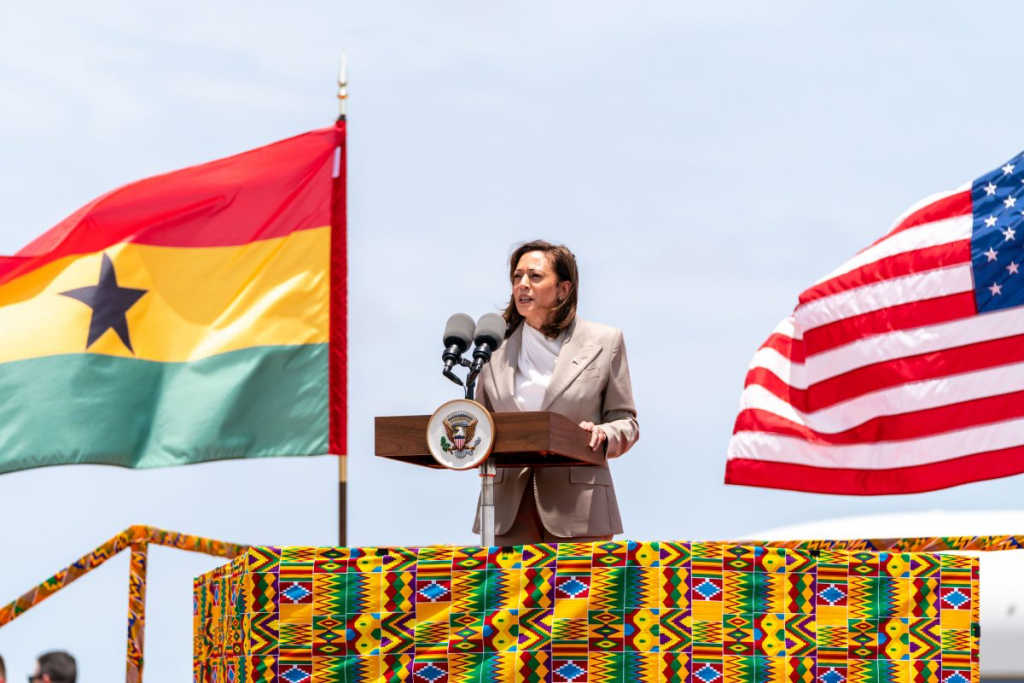Published: April 06,2023
By Staff writer

The rise of China on the global stage has caused Washington sleepless nights trying to find means of cutting down this clout that threatens US hegemony and dominance on the global stage. Africa is now one of the battle grounds that the US is eying to edge out China. Since 2009, the United States was overtaken by China as Africa’s largest trading partner, with two-way trade between the United States and Africa falling from$141bn in 2008 to $64bn in 2021. By contrast China’s trade with the continent topped $264bn in 2021, growing an additional 11% in 2022 to $282bn.
Gyude Moore, a senior policy fellow at the Washington DC-based Center for Global Development (CGD), believes that, “The United States is ready to stake a claim to a role it held before.” Moore further said that, “with Africa poised to be a major player in the future of rare earth minerals, it makes “absolute sense” that the US is turning their attention to the continent.” This means that US is fighting to push out China as the favorite trading partner with Africa. However, political analysts believe that it is too late for the US to change the over one decade good relations between China and Africa on both trade and diplomatic engagements.
The arrogance and bullying of the US to the rest of other countries in the world does not work anymore.The global dynamics have changed and the US administration is still stark in the past. On the other hand, China’s foreign policy of win-win, non-interference in internal matters of other countries, mutual respect, equality, has been welcome by many countries globally including those on the African continent. The US battle to edge out China from Africa therefore, may be considered as good as dead.
On her Africa tour that took her to Ghana, Zambia and Tanzania (March 25 – April 2), the US vice president Kamala Harris recalled to her interlocutors that during her visits she had announced public-private investments of seven billion dollars in favor of African countries. During the US-Africa Leaders Summit in December 2022 in Washington, President Biden pledged before more than 40 African leaders a package of $55bn in investments. On the other hand, since 2000, through the Forum for China Africa Cooperation (FOCAC), China has delivered much more assistance to African countries that has helped to put up the much needed infrastructure like roads, hospitals, airports and much more. According to data released by the China-Africa Research Institute at Johns Hopkins University, between 2000 and 2019, Chinese financiers signed 1,141 loan commitments worth $153bn with African governments and their state-owned enterprises.
In 2000, Chinese investment in Africa was merely at 2% of US levels, rising to 55% by 2020, according to the US Department of Defense’s Africa Center for Strategic Studies. In 2015, China committed a $60bn package of aid, subsidized lending, and state-backed investment in Africa, a commitment repeated in 2018.This explains the panic and worry of the US administration on how to counter China influence in Africa.
According to media sources, Kamala Harris said that her office planned to send a special resident advisor to Ghana to help President Akufo-Addo’sgovernment restructure its debt. In Zambia where she concluded her visit, Harris also “urged Zambia’s creditors” to speed-up the re-structuring of Zambia’s debt. “We are continuing to reiterate our call on official bilateral creditors to provide meaningful debt reduction to Zambia,” Harris said. This was a direct attack onChina and trying to play the “China debt trap” false narrative that the US uses to discredit China in Africa.
Facts are stubborn as they prove the US “China debt trap” narrative false. Research released in July 2022 by Debt Justice indicate that African governments owe three times more debt to Western banks, asset managers and oil traders than to China, and are charged double the interest. “Western leaders through the G7 have attributed the failure to make progress on debt restructuring to China, but the data shows that this is mistaken,” according to Debt Justice. Only 12% of African governments’ external debt is owed to Chinese lenders compared to 35% owed to Western private lenders, according to the calculations based on World Bank data. The US should avoid playing the smear campaign card against China in Africa but embrace fair competition and genuine diplomatic engagement.
 Africa -China Review Africa -China Cooperation and Transformation
Africa -China Review Africa -China Cooperation and Transformation
